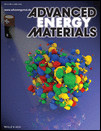
Advanced Energy Materials
metrics 2024
Empowering Innovation in Energy Solutions
Introduction
Advanced Energy Materials is a leading academic journal published by WILEY-V C H VERLAG GMBH, focusing on the rapidly evolving fields of materials science and renewable energy technologies. With an impressive impact factor and recognition as a top-tier journal, it ranks within the Q1 category in both Materials Science (miscellaneous) and Renewable Energy, Sustainability and the Environment as of 2023. Spanning from 2011 to 2024, the journal serves as an essential platform for researchers, professionals, and students eager to explore groundbreaking advancements in energy materials, fostering innovative solutions to global sustainability challenges. The journal's authoritative content is supported by rigorous peer review, ensuring high-quality research contributes to the academic community and beyond. Located in Weinheim, Germany, Advanced Energy Materials stands at the forefront of scientific inquiry, making it an invaluable resource for those invested in the future of energy and materials science.
Metrics 2024
 8.75
8.75 24.40
24.40 27.20
27.20 319
319Metrics History
Rank 2024
Scopus
IF (Web Of Science)
JCI (Web Of Science)
Quartile History
Similar Journals
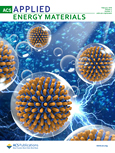
ACS Applied Energy Materials
Advancing Sustainable Solutions in Energy MaterialsACS Applied Energy Materials, published by the American Chemical Society, is a premier journal dedicated to the cutting-edge fields of energy materials, chemical engineering, and electrochemistry. With an impressive impact factor and consistently ranked in the Q1 category across multiple disciplines—including Chemical Engineering, Electrical and Electronic Engineering, and Materials Chemistry—this journal serves as a pivotal platform for researchers and professionals focused on innovative solutions for energy systems and materials science. Since its inception in 2018, ACS Applied Energy Materials has been committed to disseminating high-quality research that addresses pressing energy challenges, promoting sustainability and efficiency in various applications. Its competitive Scopus rankings reflect the journal's influence and relevance within the academic community, making it an essential resource for anyone looking to stay at the forefront of energy materials research.

NEW CARBON MATERIALS
Innovating Tomorrow's Materials TodayNEW CARBON MATERIALS, published by Elsevier, is a leading academic journal that focuses on the innovative and multidisciplinary field of carbon materials research. With an ISSN of 2097-1605 and an E-ISSN of 1872-5805, this journal has established itself as a prominent platform for disseminating cutting-edge studies and applications in the realm of carbon nanomaterials, composites, and their industrial applications. Recognized for its high quality, NEW CARBON MATERIALS holds a Q1 ranking in the Materials Science category, reflecting its significant impact within the scientific community. The journal has continuously fostered knowledge exchange since its inception in 2004 and is set to further advance research until 2024. With a Scopus rank of #89 out of 463 journals in the General Materials Science category, this publication is essential for researchers, professionals, and students seeking to stay informed about the latest developments in carbon materials. While it is not an open-access journal, it offers various access options to ensure that the latest findings are available to a broad audience. By bridging the gap between theory and practical application, NEW CARBON MATERIALS is at the forefront of addressing critical challenges and paving the way for future advancements in materials science.

Solar RRL
Pioneering research in solar energy technologies.Solar RRL, published by WILEY-V C H VERLAG GMBH in Germany, is a premier journal dedicated to advancing the field of solar energy research and technologies. With an impressive Q1 ranking across key disciplines—including Atomic and Molecular Physics, Electrical and Electronic Engineering, and Energy Engineering—this journal stands out as an authoritative source of high-impact research. Since its inception in 2017, Solar RRL has provided a platform for the dissemination of innovative ideas and findings, making vital contributions to the understanding of solar energy conversion, efficiency improvements, and sustainable technology. Researchers, professionals, and students seeking to stay at the forefront of solar energy advancements will find invaluable insights and rigorous studies in its pages. Although currently not an open-access journal, Solar RRL offers a subscription model that gives readers access to cutting-edge research that shapes the future of energy technology.

Energy & Environmental Materials
Innovating Energy and Environmental FrontiersEnergy & Environmental Materials, published by WILEY, is an esteemed academic journal dedicated to pioneering research in the multifaceted domains of energy, environmental science, and materials science. Since its inception in 2018, this journal has rapidly established itself as a leading platform, holding a prestigious Q1 ranking across multiple categories including Renewable Energy, Sustainability, and Waste Management, reflecting its significant contributions to advancing knowledge in these critical areas. With a robust Scopus ranking that positions it in the top percentile for Environmental Science and Materials Science, it caters to a diverse audience of researchers, professionals, and students seeking cutting-edge findings and practical applications in energy efficiency and sustainable materials. This open-access journal facilitates the dissemination of innovative research and aims to bridge the gap between scientific exploration and real-world solutions for a sustainable future. The editorial team encourages submissions that explore both theoretical and practical aspects, ensuring that every publication not only contributes to the academic landscape but also drives impactful change in energy and environmental practices.

Energy Materials
Empowering Energy Technologies Through Cutting-Edge Research.Energy Materials is a pioneering journal published by OAE PUBLISHING INC, dedicated to the dynamic field of energy materials science and engineering. With a focus on advancing knowledge related to materials used in various energy applications such as batteries, fuel cells, and solar cells, this open-access journal aims to disseminate cutting-edge research and innovative methodologies to a global audience. By offering a platform for original research, reviews, and case studies, Energy Materials plays a crucial role in bridging the gap between materials science and energy technology, facilitating the development of sustainable energy solutions. Researchers, professionals, and students alike will find invaluable insights in its pages, fostering advancements in this essential sector. To explore the latest developments in energy materials, visit Energy Materials at OAE PUBLISHING INC.
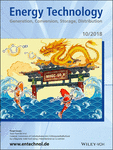
Energy Technology
Empowering Research for Sustainable SolutionsEnergy Technology, published by Wiley-VCH Verlag GmbH, is a prominent peer-reviewed journal dedicated to advancing the field of energy research and technology. With an ISSN of 2194-4288 and an E-ISSN of 2194-4296, this journal has made a significant impact in the energy sector, holding a Q2 category ranking in the Energy (miscellaneous) category for 2023, and proudly positioned in the 77th percentile within the Scopus ranking for General Energy. Since its inception in 2013, Energy Technology has consistently published cutting-edge research, innovations, and reviews that cater to a wide array of topics including renewable energy, sustainable technologies, and energy efficiency. The journal does not offer open access, yet it remains a key resource for researchers, professionals, and students who are committed to exploring the dynamic field of energy. The journal's efforts to disseminate rigorous scholarship make it an invaluable asset for anyone looking to contribute to or understand the future of energy-related technologies until 2024.

Carbon Energy
Leading the charge in carbon energy research and innovation.Welcome to Carbon Energy, an esteemed open-access journal published by WILEY that focuses on cutting-edge research in the field of energy and materials science. Since its inception in 2019, this journal has quickly established itself as a leading platform for disseminating impactful findings and innovations related to carbon-based energy solutions, renewable resources, and sustainability practices. With its impressive Q1 rankings in multiple categories—including Energy (miscellaneous), Materials Chemistry, and Renewable Energy—Carbon Energy is recognized for delivering high-quality, peer-reviewed content that meets the rigorous standards of the academic community. Through its open-access model, the journal ensures wide accessibility of research findings, making it an invaluable resource for researchers, professionals, and students alike. As we look toward the future, Carbon Energy aims to further its mission of advancing sustainable energy technologies and promoting interdisciplinary collaboration in tackling global energy challenges.
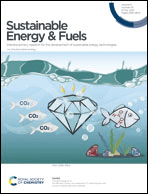
Sustainable Energy & Fuels
Advancing the Future of Energy SolutionsSustainable Energy & Fuels is a leading journal published by the Royal Society of Chemistry, dedicated to advancing knowledge in the fields of energy engineering, fuel technology, and renewable energy solutions. With its ISSN of 2398-4902 and notable Q1 status in both Energy Engineering and Power Technology as well as Fuel Technology, this journal ranks impressively in the Scopus database, ensuring a strong platform for disseminating impactful research. The journal spans a comprehensive scope aimed at addressing the global challenges of sustainable energy, including innovative methodologies and technologies that promote environmental sustainability. Although it operates under a traditional access model, the journal is committed to providing high-quality content that engages researchers, professionals, and students alike. With significant contributions expected through 2024, Sustainable Energy & Fuels stands at the forefront of facilitating scholarly communication, inspiring advancements in energy technologies that align with sustainability goals.
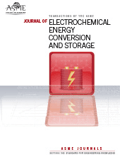
Journal of Electrochemical Energy Conversion and Storage
Connecting Ideas for a Sustainable Energy FutureThe Journal of Electrochemical Energy Conversion and Storage, published by ASME, is a premier platform for cutting-edge research in the fields of electrochemistry, energy engineering, and materials science. With an ISSN of 2381-6872 and an E-ISSN of 2381-6910, this journal aims to disseminate high-quality articles that contribute to the understanding and application of energy conversion and storage technologies. Notably recognized in the 2023 Category Quartiles as Q2 in multiple categories including Electronic, Optical and Magnetic Materials, Energy Engineering and Power Technology, and Mechanical Engineering, it reflects a strong academic impact within its field. The journal also boasts competitive Scopus rankings, highlighting its relevance and influence across disciplines. Operating under an open access model, the journal ensures that research findings are widely accessible, fostering collaboration and innovation among researchers, professionals, and students globally. As we move toward a more sustainable future, the Journal of Electrochemical Energy Conversion and Storage plays a critical role in advancing technologies that promise to reshape how we harness and utilize energy.

Electrochemical Energy Reviews
Exploring the Frontiers of Electrochemical ResearchElectrochemical Energy Reviews, published by SpringerNature, serves as an essential platform for the dissemination of cutting-edge research in the fields of electrochemistry, material science, and energy engineering. With an impressive impact factor and ranked in the Q1 category across multiple disciplines including Chemical Engineering and Energy Technology, this journal highlights its commitment to advancing knowledge and innovation within the energy sector. Operating since 2018, the journal not only provides a valuable resource for researchers and professionals but also invites contributions from students and emerging scholars interested in the pivotal role of electrochemical processes in sustainable energy solutions. Published in Germany and widely accessible to the global research community, Electrochemical Energy Reviews is an indispensable reference for those keen on exploring the future of energy technologies.